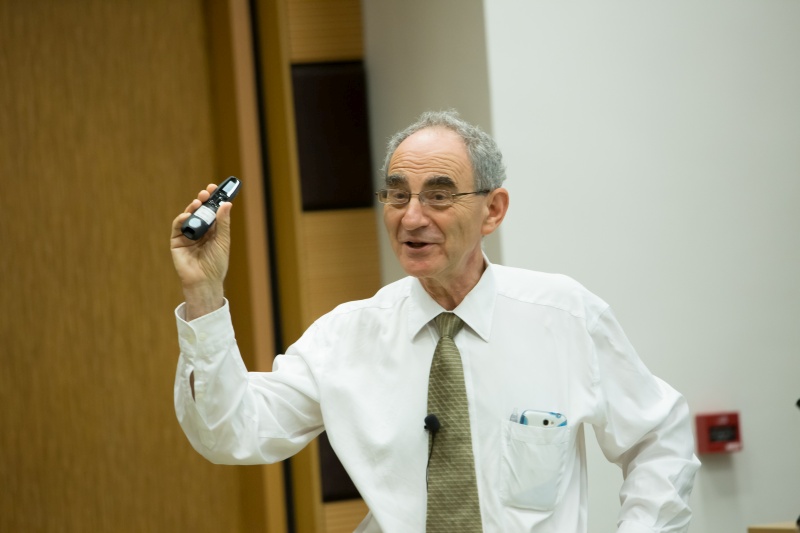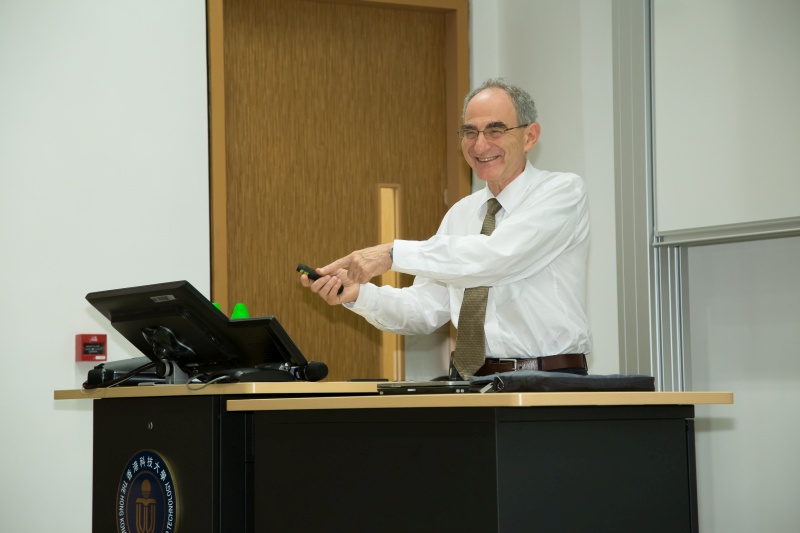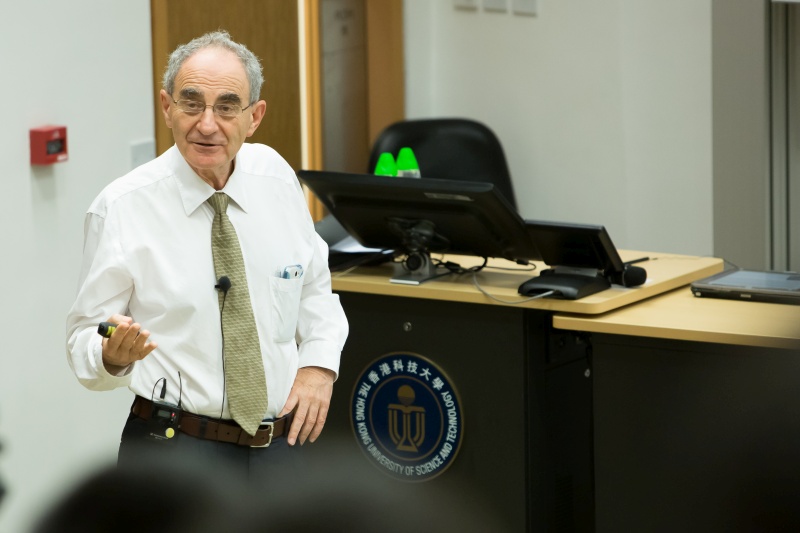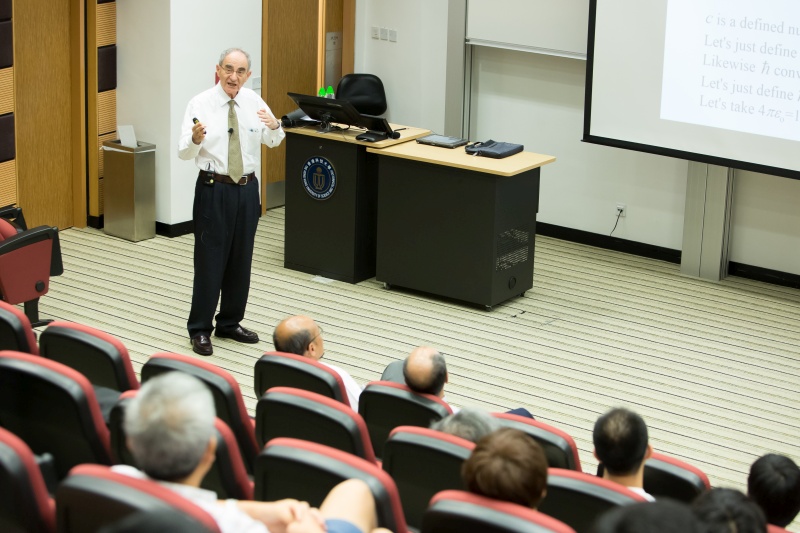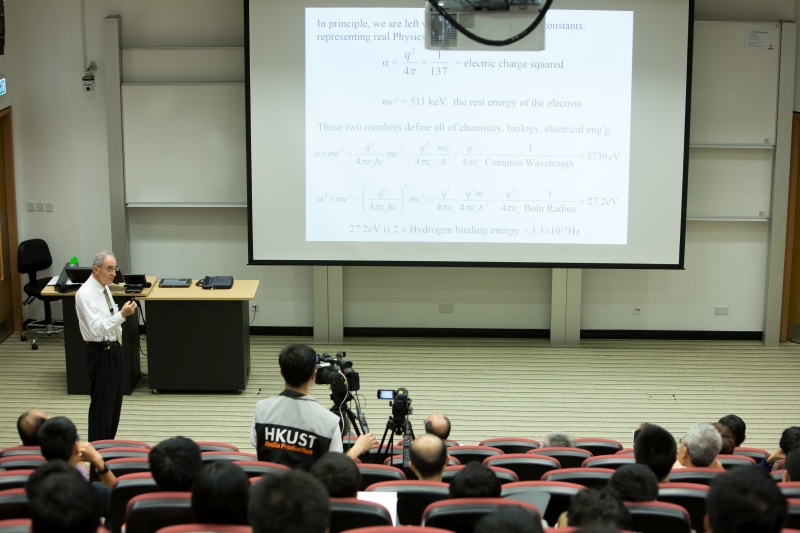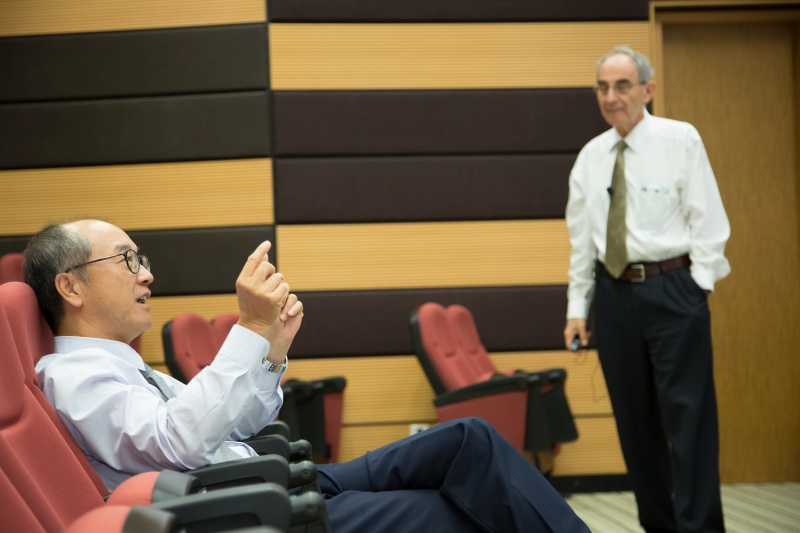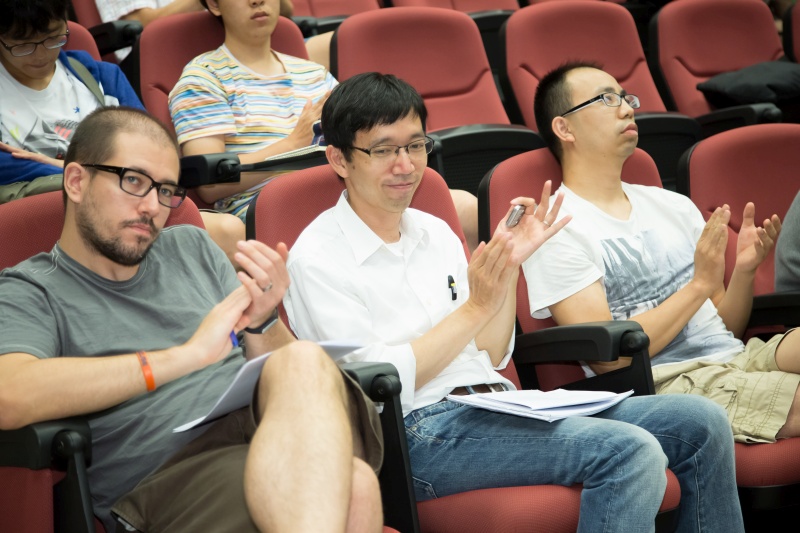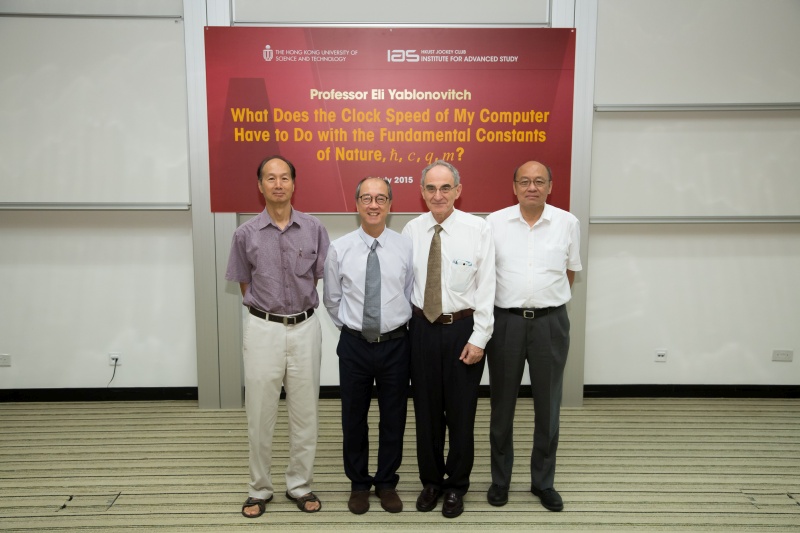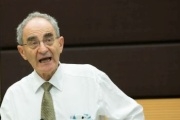What Does the Clock Speed of My Computer Have to Do with the Fundamental Constants of Nature, ħ, c, q, m?
Abstract
What limits speed? It could be the clock speed of a computer, or the speed with which we can detect a single electric charge, or we could ask the same question of many other high speed functions. One view is that the greater the resources poured into the effort, energy, money, etc., the greater the speed. The other view is that there is a fundamental speed limit that is controlled by the constants of nature, ħ, c, q, m. In this talk, the clock speed of a computer processor will be derived.
About the speaker
Prof. Eli Yablonovitch received his PhD in applied physics from Harvard University in 1972. He has worked at Bell Telephone Laboratories, Exxon and Bell Communications Research, where he was Director of Solid-State Physics Research and began his work in photonic crystals. Before joining University of California at Berkeley in 2007, where he is currently James & Katherine Lau Chair in Engineering, Prof Yablonovitch had also taught at Harvard University and University of California at Los Angeles. He was awarded a Doctor of Engineering honoris causa from the Hong Kong University of Science and Technology in 2011.
Prof. Yablonovitch's research has covered a broad variety of topics: nonlinear optics, laser-plasma interaction, infrared laser chemistry, photovoltaic energy conversion, strained-quantum-well lasers, and chemical modification of semiconductor surfaces. Currently his main interests are in optoelectronics, high speed optical communications, high efficiency light-emitting diodes and nano-cavity lasers, photonic crystals at optical and microwave frequencies, quantum computing and quantum communication.
In 2003, Prof. Yablonovitch was elected Member of both the US National Academy of Engineering and US National Academy of Sciences. He is also a Fellow of the Institute of Electrical and Electronic Engineers (IEEE), the Optical Society of America, and the American Physical Society. He has been awarded the Adolf Lomb Medal, the W. Streifer Scientific Achievement Award, the R.W. Wood Prize, the Julius Springer Prize, the Harvey Prize, the IEEE Photonics Award and the Institution of Engineering and Technology Mountbatten Medal. He has recently received the 2015 Isaac Newton Medal by the Institute of Physics in London for "his visionary and foundational contributions to photonic nanostructures".

